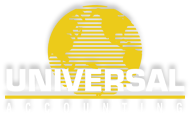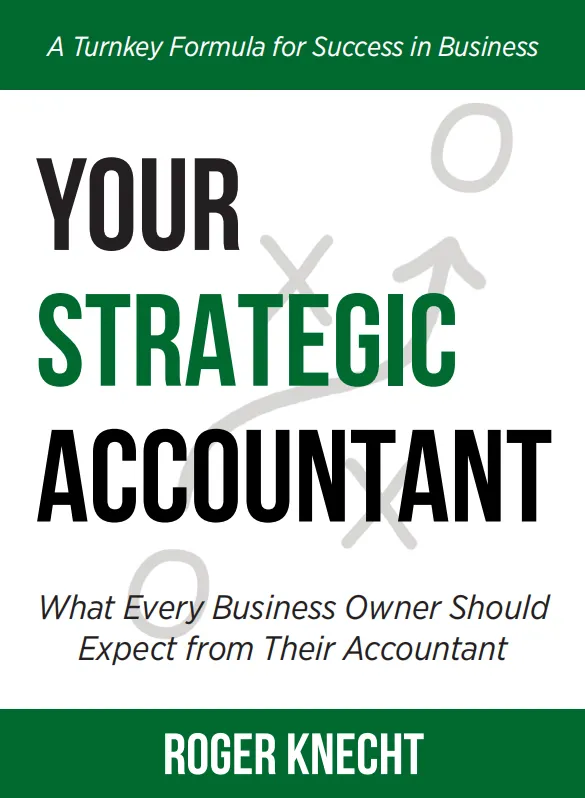Accounting is the language of business, and accountants play a pivotal role in helping organizations make informed financial decisions. To excel in this profession, it’s essential to possess a broad spectrum of skills that extend beyond number-crunching. Let’s delve into the crucial skills that can lead to success in the world of accounting.
Becoming an Accountant: Top Skills of an Accountant
Embarking on a fulfilling accounting career requires mastering the generally accepted accounting principles (GAAP) and developing a robust skill set. As accountants often handle multiple projects simultaneously, a proficiency in accounting standards becomes indispensable. Those looking to pursue accounting should aim to cultivate a keen understanding of these principles, enabling them to contribute valuable insights to business decisions. With a solid foundation in GAAP and a diverse skill set, individuals can navigate the intricate landscape of accounting, making significant contributions to informed and strategic business decisions.
Technical Skills Accountants Need
Acquiring the technical skills required to become an accountant is paramount in navigating the diverse landscape of accounting jobs. A robust accounting skill set is crucial for professionals to excel in various accounting practices. Specifically, technical accounting skills are required to ensure precision and compliance with industry standards. Proficiency in financial analysis, data interpretation, and proficiency in accounting software are indispensable components of the skill set that modern accountants should possess. These technical capabilities not only enhance job performance but also contribute to the overall success of accounting professionals in their dynamic and challenging roles.
Your business is an asset. You should know its value and understand how to maximize it.
Mastering Accounting Software and Tools
One of the fundamental skills for accountants is proficiency in accounting software. Whether it’s QuickBooks, Excel, or specialized industry software, accountants must navigate these tools with ease.
Financial Analysis
Accountants should be adept at analyzing financial data to provide valuable insights. This skill involves identifying trends, making forecasts, and recommending actions based on the data. Mastery of spreadsheet applications like Excel is essential for tasks including financial analysis, modeling, and reporting, further enhancing an accountant’s toolkit.
Taxation Knowledge
Understanding tax laws and regulations is indispensable. Accountants need to ensure that their clients or organizations comply with tax requirements and take advantage of available deductions.
Bookkeeping
By meticulously documenting income, expenses, and other transactions, accountants ensure the integrity of financial data for analysis and reporting.
Cost Accounting:
This discipline empowers accountants to offer valuable insights into expenses, profitability, and cost-efficiency, enabling organizations to make informed financial decisions and optimize their resource allocation.
Risk Management
Accountants play a crucial role in developing financial strategies to minimize the impact of uncertainties, safeguarding the organization’s assets, and ensuring the integrity of financial objectives in the face of potential risks.
Basic Soft Skills You Need for a Career In Accounting
Attention to Detail
Accuracy in Financial Records and Financial Reporting
The devil is in the details when it comes to accounting. Minor errors can lead to significant financial discrepancies, so accountants must maintain meticulous accuracy.
Error Detection and Prevention
Apart from being accurate, accountants should also be skilled in identifying and preventing errors. This proactive approach helps maintain financial integrity.
Critical Thinking
Problem-Solving Abilities
Accountants often encounter complex financial issues that require analytical skills. They must devise solutions to challenges such as budget shortfalls or financial mismanagement.
Critical Analysis of Data
Critical thinking is vital for analyzing financial statements, spotting anomalies, and ensuring financial health. Accountants should be capable of dissecting data and drawing meaningful conclusions.
Time Management
Meeting Deadlines
Accounting tasks often come with strict deadlines, especially during tax seasons. Time management is crucial to ensure that all tasks are completed promptly and accurately.
Prioritizing Tasks
Prioritization helps accountants tackle high-priority tasks first, ensuring that critical financial matters are addressed promptly.
Ethical and Professional Conduct
Code of Ethics
Accountants are held to high ethical standards. They must adhere to a code of ethics that includes principles like integrity, objectivity, and confidentiality.
Confidentiality
Protecting sensitive financial information is paramount. Accountants must maintain the confidentiality of client data and financial records.
Adaptability
Staying Updated with Regulations
Accounting regulations and tax laws are subject to change. Accountants need to stay updated to ensure compliance.
Embracing Technological Changes
The accounting landscape is evolving with technology. Accountants who embrace digital tools and automation gain a competitive edge.
Teamwork
Collaborating with Colleagues
In accounting firms and organizations, teamwork is vital. Collaboration fosters a supportive work environment and encourages knowledge sharing.
Sharing Knowledge
Experienced accountants should mentor and share their knowledge with junior colleagues, fostering professional growth.
Strategic Thinking
Long-Term Financial Planning
Accountants should think strategically, assisting clients or organizations in making long-term financial plans and investments.
Business Advisory
Offering sound financial advice beyond traditional accounting services can provide added value to clients.
Leadership Skills
Managing Teams
As accountants advance in their careers, leadership skills become crucial for managing teams and guiding them to success.
Guiding Junior Accountants
Experienced accountants often play a mentoring role, imparting their knowledge and helping junior accountants grow.
Presentation Skills
Communicating Financial Insights
Effectively presenting financial information to clients or colleagues is essential. It helps others make informed decisions based on the data.
Client Meetings
Accountants must conduct meetings with clients, where presentation skills can make a significant difference in conveying financial insights.
Boost Your Accounting Skills To Be a Successful Accountant
Elevate your expertise with specialized accounting courses designed to improve your accounting skills. These targeted programs not only deepen your understanding of complex financial concepts but also refine essential hard and soft skills needed for accounting.
Pursuing Further Education
Accounting is a dynamic field, and ongoing education is necessary to stay updated with industry trends and regulations.
Professional Certifications
Obtaining certifications like CPA (Certified Public Accountant) can enhance credibility and career prospects.
Universal Accounting Center provides cost-effective, self-paced training, enabling individuals to become certified tax preparers. With this certification, you’ll be well-equipped to assist clients in navigating intricate tax codes, identifying deductions and credits, and ensuring the accuracy of tax returns that can withstand scrutiny.
Conclusion
Success in accounting requires more than numbers; it demands technical expertise, organizational skills, and ethical conduct. A degree in accounting sets the foundation, while proficiency in hard skills like financial reporting and data analysis is crucial. Organizational skills ensure efficient data management, and strong customer service skills foster client relationships. Upholding ethical standards is non-negotiable, and adaptability to evolving accounting landscapes is key. This holistic skill set positions accountants as valuable contributors to clients and organizations.
FAQs
- What are the most important technical skills for accountants?
Technical skills include proficiency in accounting software, financial analysis, and tax knowledge.
- How can accountants improve their communication skills?
Accountants can enhance communication through effective written and interpersonal communication.
- Why is ethical conduct crucial in accounting?
Ethical conduct is vital to maintain trust, integrity, and confidentiality in the profession.
- What is the role of adaptability in the accounting profession?
Adaptability ensures accountants stay current with changing regulations and technology.
- Can accountants transition into leadership roles?
Yes, experienced accountants can develop leadership skills and manage teams as they progress in their careers.
Share this post: on Twitter on Facebook on Google+







